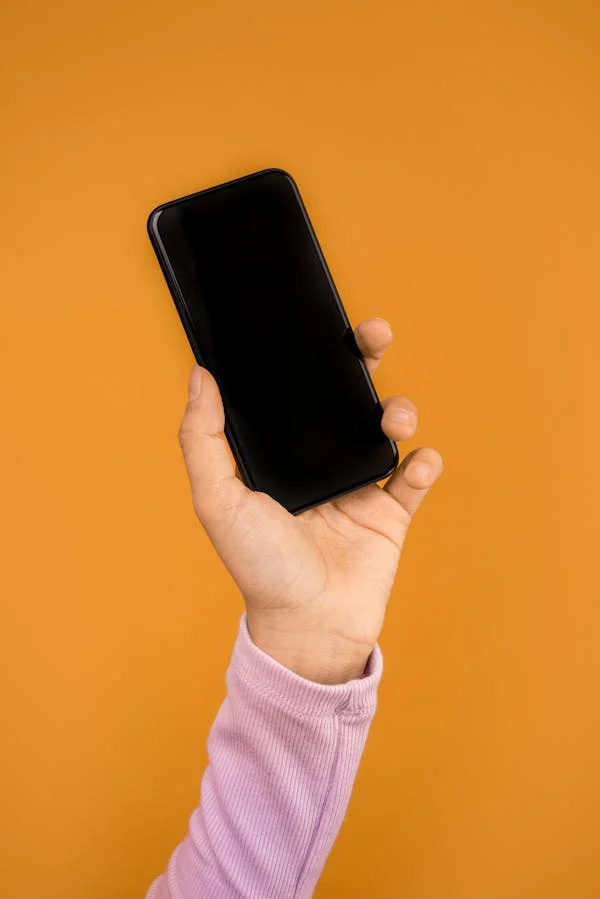The problem we face today is that while smartphones are indispensable, our excessive use is becoming an issue that affects both our health and well-being. Similar to most drugs, smartphones are designed to be addictive in their nature. Most apps use algorithms that feed users content based on their preferences and interactions, keeping them engaged for longer periods. Psychology Today comments on dopamine-driven notifications, stating “When you bring up the feed on one of your favorite apps the dopamine loop has become engaged. With every photo you scroll through, headline you read, or link you go to you are feeding the loop which just makes you want more.” Paired with this, is the endless ability to scroll through your favorite apps and feeds with no end in sight. It becomes mindless scrolling, and most times the information you see is not even registered in your brain.
Another draw to the smartphone is our own FOMO, fear of missing out. Having a phone can allow you to be connected anytime, anywhere, essentially removing the FOMO feelings in many contexts. But, it should be noted that seeing an activity on a screen is not anywhere near the same as actually experiencing it.
The convenience of the smartphone also often blurs the lines between necessary and overuse. Between work, socializing and entertainment, your entire life can be controlled by a smartphone without you even realizing it. And while it’s commonly thought that Gen Z has the highest smartphone usage, this issue truly impacts all demographics, from kids to working professionals.
It has been proven time and again that excessive phone use is bad for both our mental and physical health. Numerous studies show increased stress, anxiety, and depression linked to social media overuse due to the comparison traps and constant connectivity overstimulating our brains. Columbia University researchers highlight “The tendency to compare oneself with others and the desire for validation through likes and comments can lead to a distorted self-image and feelings of worthlessness.”
Along with our mental health, physical health is also extremely impacted by our technology use. It’s commonly known that blue light exposure late at night affects our ability to sleep and increases late-night scrolling. This also leads to eye strain and even “text-neck,” which Spine Health notes “is not an official medical diagnosis, but rather a term commonly used for a repetitive stress injury where excessive texting or mobile device use is believed to be the primary cause.” Beyond physical and mental health, heavy phone usage also leads to cognitive and productivity degradation. Not only is phone overuse connected to reduced attention span and productivity due to constant multitasking, but it also has negative impacts on memory and concentration.
So after knowing all of this, this author hopes readers everywhere will make changes to their phone usage. However, in reality, unplugging can be difficult in our technology-driven world. It is not as easy as many make it out to be and almost should be treated similarly to an addiction. But, to keep it simple, four strategies to unplug have been researched and brought to light:
The first step is to set boundaries with yourself. This may look like no phones an hour before bed, or the entire time you eat a meal. While it may seem overwhelming, try doing it during times you know you don’t need your phone, like during class or in a meeting. Our second tip ties into the first, and it is using technology to fight temptation. Set timers on apps or implement “do not disturb” hours, which will help your brain become less attached as time goes on. If needed, have a trusted friend put the screen time password into your phone, so that way no amount of temptation can sway you.
The third tip is to replace your usual phone time with an alternative activity. Instead of doom-scrolling before you sleep, instead, try to read or do creative activities. Even simple crossword puzzles can help slow your brain down and get it ready to sleep, rather than scrolling. The final tip is to start small. Rome was not built in a day, and your habits won’t change in one either. Begin by implementing shorter times when you are off your phone, and gradually build up from there. In all honesty, realizing your problems and actively working to fix them is probably the hardest step, but the most rewarding in the process.
Overall, this is not a call for the removal of phone usage. They are too necessary in today’s world of work and communication to completely give them up. Instead, this is a call for reframing as a way to enhance your quality of life, not eliminate connection entirely. It is clear that smartphones have a wide range of amazing benefits and abilities, but many do not realize a phone’s harmful effects.
Researchers across the world realize the importance of finding a balance in technology use for the best physical, mental and emotional health. This balance can then lead to greater and deeper connections both in the digital and real world.
Now, as a reader, you are left with a choice of action. Continue on, overusing phones and social media apps, or, make an actionable change that will benefit you. It should be noted that even the smallest changes can lead to big improvements in your well-being and relationships.

